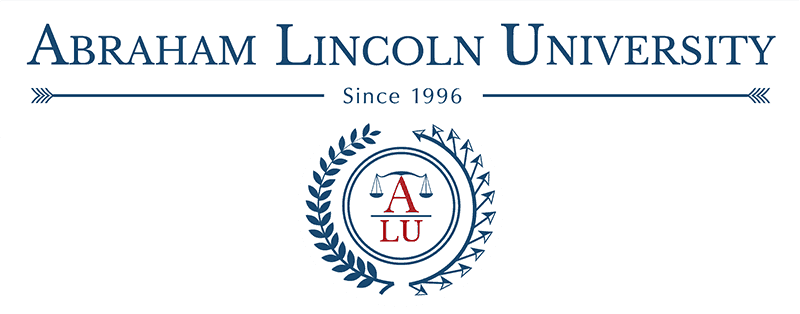Should the bar exam be held in-person right now, or remotely? Maybe opting for diploma privilege is a better choice. Before you decide which method is best, hear one woman’s story and weigh the pros and cons.
Law school students normally look forward to the bar exam — well, maybe not the actual act of sitting for it. But knowing that this exam is the only thing standing between their status as law school students and the beginning of their law careers is a big motivator.
However, this year has law students approaching this exam with trepidation. This year, the year of the coronavirus pandemic, the act of gathering with several individuals for hours and days at a time in a room does not sit well with some law school students.
Testee Tests Positive
Sydney Donovan, a Colorado law school student who took the in-person bar exam in July 2020, ended up testing positive for the coronavirus.
Twenty other law students took the exam with her at the University of Denver Sturm College of Law and were possibly exposed to the virus as well.
All students taking the bar were required to pass 2 temperature checks, fill out 4 health questionnaires and wear a mask at all times. Donovan passed all checks and exhibited no symptoms while taking the exam.
The college also made sure all students remained 6 feet apart from each other during testing.
Donovan found out about her positive diagnosis somewhat by chance. She had taken a COVID test prior to sitting for the bar; she had an upcoming surgery and was required to take the test for that.
She got the results of the COVID test right after finishing the bar exam. She discovered a voicemail letting her know that her surgery had been canceled due to her testing positive for the coronavirus.
Shortly thereafter, she did start experiencing mild symptoms of a scratchy throat and slight headache, both of which she said she would have attributed to allergies had she not known of her positive COVID diagnosis.
Immediately after getting the voicemail of her positive results, Donovan informed the college.
Students Petition for Protection
In Donovan’s words, none of this came as a surprise. She just didn’t think that she’d be the one it happened to.
She, along with a group of other law school students, knew that sitting for the bar exam right now, in the midst of a pandemic, was a bad idea. The group wrote a letter to the Colorado Supreme Court requesting that they be allowed to skip taking the bar exam for now and be allowed to work as lawyers, as a few other states have done.
In their words: “We urge you to make the humane choice: grant diploma privilege to protect the physical, mental, financial, and professional well-being of future Colorado attorneys as we begin our careers.”
The court’s response wasn’t entirely in their favor, but they did allow the students to postpone testing until February 2021.
And now with Donovan’s positive test result, the group is having a “told-you-so” moment.
School and Court Response to COVID-Positive Student
Soon thereafter, the university released a statement: “The University’s COVID response team was promptly informed of this development and has instituted appropriate protocols to be used in such instances, including tracing.”
Jessica Yates, attorney regulation counsel for the Colorado Supreme Court, said that the other 20 students who took the test with Donovan were informed of her test results and that they should monitor themselves for any coronavirus symptoms.
The students were also told that there was no need to self-quarantine since they weren’t in close contact with Donovan.
Yates commented, “Because of the consistent wearing of masks, particularly with 6-foot distancing, they do not deem the testing environment as ‘close contact’ with a COVID-positive person. The public health authorities are not asking individuals in the same testing room to self-isolate or be tested at this time.”
Colorado Courts Say No to Emergency Diploma Privilege
Although several diploma privilege advocates argued and petitioned for the courts to allow law school graduates to become licensed without taking the bar exam due to the possible danger of spreading the virus, Colorado’s Supreme Court rejected it.
Later that month, 23 jurisdictions, including Colorado, conducted in-person bar exams over the 2-day period of July 28-29, 2020. In total, close to 700 were present for the test. The exam took place in 3 different venues which split the test takers up into several different classrooms.
For the University of Denver, where Donovan tested, there were a total of 168 people taking the test in 6 different classrooms.
University COVID Stats
Taking a look at many of the recent university COVID stats, it becomes easy to see why many institutions decided to avoid in-person gatherings altogether and go with online learning for this semester.
According to a report in the New York Times, over 1,600 educational institutions have reported COVID cases, and the total number of cases thus far is over 88,000.
The report showed more than 81,000 additional cases were reported since late July, and of those, 61,000 had been reported since late August.
Additionally, some campuses are just now starting to report their data concerning COVID cases, so a better look at the numbers is to come.
Pros and Cons of the Options
So, what’s the best option for law school students that have put in their blood, sweat, tears, time and money for their legal education and preparation and are ready to start practicing when, through no fault of their own, a pandemic has put a pause on their plans?
Let’s weigh the pros and cons of each.
1. In-person
Pro: Giving the exam in-person would require no change, making it the easiest option. A few tweaks to the logistical details (e.g. using additional rooms to allow for social distancing) and students could “safely” be accommodated.
Con: Giving the exam in-person in the middle of a pandemic opens up the chance of exposing students and others in the building during testing to the virus.
2. Remote
Pro: Taking the exam remotely can protect the students by removing the need to congregate. This takes away the possibility of a viral spread among the students and those administering the test.
Con: A remote bar exam opens up the possibility of security issues. The risk of being hacked is greater. Also, the privacy of the test takers could be at risk, considering some venues are opting to use biometric information of the test takers for identification purposes.
3. Emergency Diploma Privilege (Postponed Bar Exam)
Pro: Emergency diploma privilege gives law school grads the opportunity to start practicing law under the supervision of a licensed lawyer. This arrangement continues until the new grad passes the bar exam, which they could choose to postpone until they feel comfortable sitting for the exam. Determine if this is an available option for you by contacting your state bar. For example, the website for The State Bar of California provides an FAQ on its provisional licensure program.
Con: Some believe that an emergency diploma privilege would produce inconsistencies in qualifying new lawyers.
The Best Option for Law Students
So what’s best for the law students? With so many different angles, situations and opinions, this has become a tough question to answer and for many is still being sorted out.
Options differ for students depending on the university they attend and the state they’re in. Until this pandemic is over, we won’t truly know the answer. In the meantime, states and institutions are making what they feel are the best decisions based on the information available to them now, and that’s all we can ask for.
 About the Author
About the Author
Matt Sharp, the founder of The Law Office of Matthew D. Sharp, earned his JD from St. Mary’s University of Law in San Antonio, Texas. During law school, he was awarded the prestigious Pro Bono Service Award. With over 12 years of experience in the legal field, Matt dedicates his entire practice to criminal law. In addition to volunteering his legal skills to Houston’s local community, Matt is a member of the American Civil Liberties Union of Texas, the Texas Criminal Defense Lawyers Association, and the Harris County Criminal Lawyers Association.






